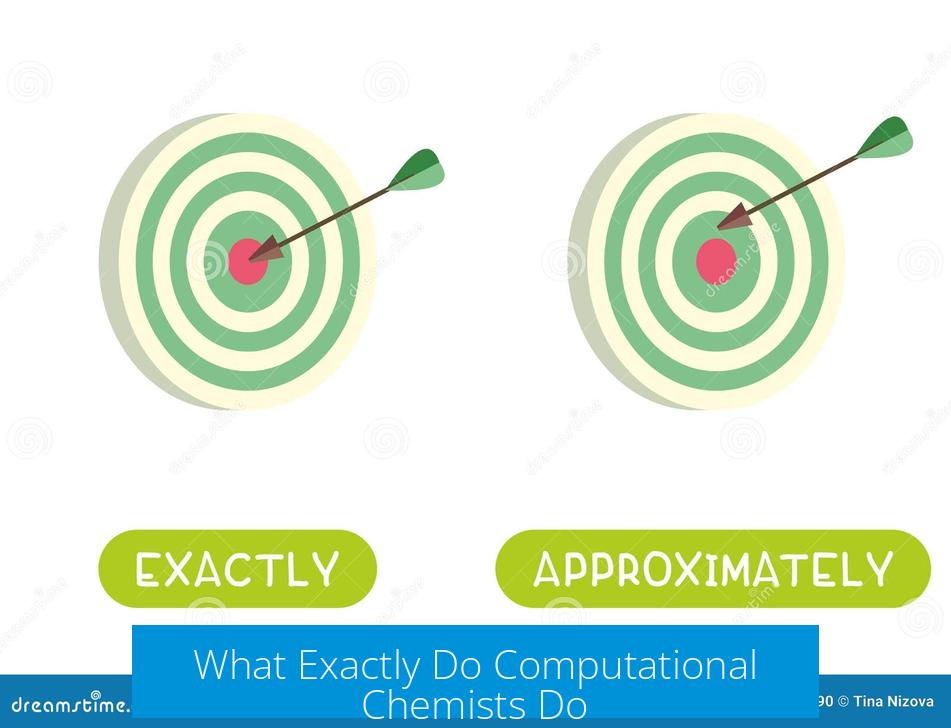What Exactly Do Computational Chemists Do?

Computational chemists apply computer simulations to study chemical systems and reactions. They create models that predict molecular behavior and properties, supporting experimental work and guiding new discoveries in chemistry and related fields.
Understanding Computational Chemistry
Computational chemistry integrates principles from chemistry, physics, mathematics, and computer science. It enables researchers to investigate molecules and reactions through simulations rather than physical experiments. This approach saves time and cost and can reveal mechanisms difficult to observe in the lab.
The field is growing rapidly and offers multidisciplinary experience. Many scientific publications rely on computational modeling to interpret or supplement experimental results. Skills in this area benefit students aiming for graduate studies or careers in industry.
Typical Tasks and Daily Activities
Computational chemists design and run theoretical models by programming or using specialized software. After submitting jobs to computer clusters or supercomputers, much time involves analyzing results, troubleshooting unexpected outcomes, and researching relevant theory to interpret data.
Waiting periods are common while simulations run, so the workload may fluctuate. Some days require intense focus on problem-solving and reading, while others allow lighter duties.
Tools and Techniques Used
- Quantum mechanical calculations (e.g., Density Functional Theory, Hartree-Fock)
- Molecular dynamics simulations
- Statistical mechanics methods
- Scripting and programming (often in Linux environments to automate tasks)
- Use of open-source and commercial software packages for chemical modeling
Many students start with common, established computational methods and gradually learn to customize or optimize their workflows. Computing resources range from personal laptops for small jobs to university clusters for large-scale simulations.
Flexibility and Independence
Computational chemistry offers significant flexibility in work hours and location. Some practitioners work remotely with minimal in-person supervision. These professionals can often tailor their schedules and research focus widely.
This independent nature allows researchers to pursue multiple hypotheses and run diverse computational experiments, scaling effort according to their interest and goals.
Intellectual Engagement and Growth
The field demands continuous learning. Its multidisciplinary foundation requires understanding chemistry, physics, computational theory, and programming. While deep theoretical knowledge is not always mandatory, deeper insight enhances research quality and innovation.
Self-driven chemists stand out by automating routine tasks, exploring new methodologies, and testing innovative ideas beyond the minimal project requirements.
Impact on Research and Career
Computational chemistry contributes to optimizing molecular designs, predicting reaction pathways, and understanding complex chemical phenomena. For example, researchers can identify optimal particle shapes or transition states that guide synthesis in the lab.
Experience in computational methods strengthens resumes and opens opportunities in academia, pharmaceuticals, materials science, and other sectors. Importantly, these skills demand less physical lab time, making them attractive for balancing research and study.
Summary of Key Points
- Computational chemists model chemical systems using computer simulations.
- They combine chemistry with physics, math, and computer science knowledge.
- Typical work includes running calculations, analyzing data, and extensive literature review.
- Tools include quantum chemistry methods, molecular dynamics, and programming in Linux.
- Work schedules are flexible and often independent.
- The role supports multidisciplinary learning and career development.
- Contributions assist experimental research by predicting molecular behavior and properties.
- Computational chemistry skills enhance future academic and industry prospects.




Leave a Comment